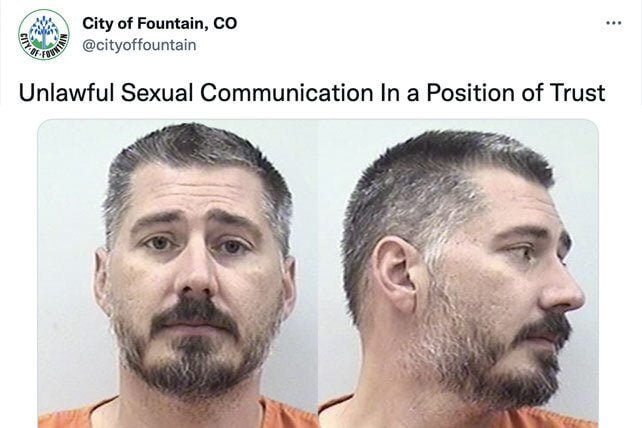
Have you ever wondered why many Evangelicals blindly believe and submit to whatever their pastors utter from the pulpit? Faithful church members bow in reverence to self-appointed men of God; men who say they are called by God to preach and lead churches — yet their calling comes not from a deity, but from their own wants, needs, desires, and that of the churches they pastor. Skeptics wonder why these people don’t see through the con and think for themselves. All any of us needs to do is listen to what these preachers are saying to conclude that they are spouting harmful nonsense. Yet, otherwise intelligent people check their minds at the church door and give themselves over to men who will purportedly teach them truth and provide a blueprint for living. No need to think, just believe. No need to wrestle with questions and doubts, just have faith. belief and faith, not just in the Christian God and the Protestant Bible, but also the words of pastors and evangelists who are given almost absolute power over congregants.
Evangelical churches are typically pastored by one man. This is especially true in Southern Baptist and Independent Fundamentalist Baptist (IFB) churches. Some churches have a plurality of pastors (elders), but I have found that despite this plurality, there is almost always one man who has the final say. Most Evangelical churches have a congregational form of government. This means that the church membership has the final say on how the church is run, including who its pastor will be. The thinking goes, then, that if congregants want a new pastor, all they have to do is vote the present one out of office. However, rarely is getting rid of a pastor so simple, especially in churches that aren’t part of a denomination. If a church is a member of a particular denomination, congregants can, if need be, call on denominational leaders to help remove a pastor from office. In independent churches, the congregation has the final say; that is, if the church hasn’t ceded its control to a board of elders or, as is the case in many megachurches, an outside board of directors (much like the corporations such churches are patterned after).
Churches have governing documents, one of which is a constitution. The constitution details who is a voting member and how/when votes can be called. If a church wants to dismiss its pastor, it must follow the process detailed in its constitution. Many constitutions state that removing a pastor requires a two-thirds or three-fourths vote of the membership. This high standard makes it hard for congregations to fire their pastor. Even worse, pastors — if they are at a particular church for a long time — will attract loyal church members who will oppose attempts to remove him. The longer a man pastors a church, the harder it is to get rid of him. Over time, he becomes the hub around which everything turns. The pastor is viewed as God’s mouthpiece; a man called by God to pastor that particular church. Is it any surprise then, that long-tenured pastors tend to become authoritarians?
Baptist pastors, in particular, are fond of talking about pastoral authority — the power by which they control the church. Bruce, I thought Evangelicals were people of the Book; that the Bible was the sole rule for faith and practice? It is, and the Bible does indeed grant pastors authoritarian control over their churches.
The Bible says:
And he [God] gave some, apostles; and some, prophets; and some, evangelists; and some, pastors and teachers; For the perfecting of the saints, for the work of the ministry, for the edifying of the body of Christ: (Ephesians 4:11,12)
Let every soul be subject unto the higher powers. For there is no power but of God: the powers that be are ordained of God. (Romans 13:1)
Remember them which have the rule over you, who have spoken unto you the word of God: whose faith follow, considering the end of their conversation. Obey them that have the rule over you, and submit yourselves: for they watch for your souls, as they that must give account, that they may do it with joy, and not with grief: for that is unprofitable for you. (Hebrews 13:7, 17)
I beseech you, brethren, (ye know the house of Stephanas, that it is the firstfruits of Achaia, and that they have addicted themselves to the ministry of the saints,) That ye submit yourselves unto such, and to every one that helpeth with us, and laboureth. (1 Corinthians 16:15, 16)
And we beseech you, brethren, to know them which labour among you, and are over you in the Lord, and admonish you; And to esteem them very highly in love for their work’s sake. And be at peace among yourselves. (1 Thessalonians 5:12,13)
This is a true saying, if a man desire the office of a bishop, he desireth a good work. A bishop then must be ….One that ruleth well his own house, having his children in subjection with all gravity; (For if a man know not how to rule his own house, how shall he take care of the church of God?) (1 Timothy 3:1,2,4,5)
Let the elders that rule well be counted worthy of double honour, especially they who labour in the word and doctrine. For the scripture saith, thou shalt not muzzle the ox that treadeth out the corn. And, The labourer is worthy of his reward. Against an elder receive not an accusation, but before two or three witnesses. (1 Timothy 5:17-19)
The elders which are among you I exhort, who am also an elder, and a witness of the sufferings of Christ, and also a partaker of the glory that shall be revealed: Feed the flock of God which is among you, taking the oversight thereof, not by constraint, but willingly; not for filthy lucre, but of a ready mind; (1 Peter 5:1.2)
Take heed therefore unto yourselves, and to all the flock, over the which the Holy Ghost hath made you overseers, to feed the church of God, which he hath purchased with his own blood. (Acts 20:28)
(And yes, I realize these verses can be interpreted many different ways. But this is my sermon, so I decide what these verses mean!) 🙂
These verses and others are interpreted to mean that God-called pastors have rule over the churches they pastor. Church members are obligated to submit to their pastor’s authority. Not doing so is considered rebellion and could bring judgment from God or excommunication. Most often, rebellious congregants are shown the door and told to find a church that meets their “needs.” It is not uncommon to find Evangelical churches that have high membership churn rates. Members who become tired of eating McDonald’s quarter-pounders leave and hit the drive-thru at Wendy’s. And on and on it goes. I pastored people who had been members of numerous churches before they came to one of the churches I pastored. These church-hoppers rarely stay for long. Initially, they will find their new churches to be delightful, but given enough time, they will find faults with their pastors and move on to greener pastures. The one thing that church hoppers never do is consider that they might be the problem. They place blame on the pastor or the congregation, often couching their objections in theological verbiage, but more often than not, they are difficult people or they bore easily.
Most Evangelical churches are a mix of new and old members. The longer someone stays in the church, the more they become conditioned to their pastor’s preaching, teaching, and leadership. This conditioning allows pastors to gain authority over congregants that in any other setting would be considered cultic. They are taught their entire lives that the man standing behind the pulpit is called by God to deliver divine messages to them, so it should come as no surprise that, bit by bit, they surrender their will and critical thinking skills to the man behind the pulpit. In time, pastors amass great power and control, and once this happens these leaders can and do muddle the minds of their charges, rendering them powerless to resist.
Worse, many Evangelicals want to be told what to believe and how to live their day-to-day lives. They come to church on Sundays to be inspired and taught the ways of God. This is why, when Evangelicals are quizzed about their beliefs, more often than not they either can’t give an answer or they simply regurgitate the beliefs of their pastor. As a pastor, I was often asked, what does your church believe? I would respond, I don’t know what the “church” believes. This is what I believe, and it is these beliefs that are the foundation of my preaching and teaching. Most congregants are not going to spend significant time studying the Bible. This does not make them bad Christians. The truth is, pastors have the freedom and luxury to read and study the Bible. Church members have full-time jobs, families, and countless responsibilities that limit the amount time they can devote to theological learning. Thus, most Evangelicals have a theology they have borrowed from their pastors. They know what their pastor knows, and, unfortunately, many Evangelical pastors are poorly educated. When a pastor believes God speaks through him, why should he study? When he believes that God puts His words in the pastor’s mouth and all he has to do is utter them, why bother with the words of mere humans? And if members dare to think for themselves and challenge something their pastor has said, they can expect to be reminded that Pastor So-and-So has authority over what is taught and members are expected to believe as he does or leave.
Church aisles are littered with the bodies of those who dared to challenge the man of God’s authority. Their deaths are their own fault. Don’t they remember their pastor quoting 1 Chronicles 16:22: Saying, Touch not mine anointed [Hebrew for pastor], and do my prophets [Hebrew for pastor] no harm? Surely they have heard the Bible story about some children who mocked the prophet Elisha? 2 Kings 2:23, 24 says:
And he [Elisha] went up from thence unto Bethel: and as he was going up by the way, there came forth little children out of the city, and mocked him, and said unto him, Go up, thou bald head; go up, thou bald head. And he turned back, and looked on them, and cursed them in the name of the Lord. And there came forth two she bears out of the wood, and tare forty and two children of them.
Mess with the man of God, rebellious church members, and God might send bears to eat you alive, just like he did to the children who mocked Elisha. Simply put, mess with the pastor and he will have God fuck you up!
Is it any wonder that many people need therapy and counseling after extricating themselves from Evangelical churches? Those of us who spent most of our lives under the thumbs of authoritarian religious figures often spend years regaining a sense of self-worth. What’s worse for someone such as myself is that I not only was victimized by my pastors and teachers, I was also a victimizer. I taught and practiced what my pastors and professors taught me. I passed on to a new generation the dysfunction of my generation. The only good news in this sordid story, at least for me, is that I got off the crazy train and abandoned the damaging religious nonsense that controlled my mind for almost fifty years. Better late than never, I suppose, but I still lament the fact that I lovingly and sincerely caused untold harm to my family and the churches I pastored. By owning my past, I am in a better position to help people avoid a similar path. While I grudgingly and doubtfully admit that some religious expressions are less harmful than others, I can’t help but think that until the world reaches a place where it no longer has a need for deities, religion will continue to cause harm. This is especially true of Evangelical Christianity. It will be a good day when Fundamentalist Christianity draws its last breath. I will long be dead, but perhaps one of my grandchildren will have the privilege to hold a pillow over the Evangelical God’s face as it struggles to breathe. Good riddance, I say.
Bruce Gerencser, 68, lives in rural Northwest Ohio with his wife of 47 years. He and his wife have six grown children and sixteen grandchildren. Bruce pastored Evangelical churches for twenty-five years in Ohio, Texas, and Michigan. Bruce left the ministry in 2005, and in 2008 he left Christianity. Bruce is now a humanist and an atheist.
Your comments are welcome and appreciated. All first-time comments are moderated. Please read the commenting rules before commenting.
You can email Bruce via the Contact Form.










